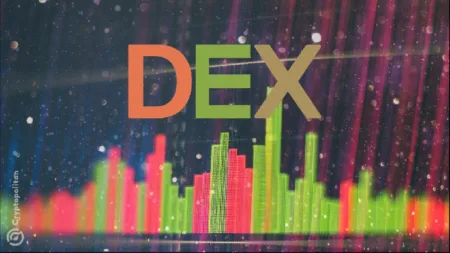The quest for passive income through crypto investments requires a nuanced understanding of the market, personalized strategies, and a cautious approach to high-yield promises.
It is important to understand the importance of aligning investment approaches with individual goals and risk tolerance, while navigating the decentralized finance (DeFi) sector.
One DeFi Protocol Does Not Fit All
In a recent interview with BeInCrypto, Lucas Kiely, CIO at Yield App, shared his insights on effective strategies for earning passive income through cryptocurrency. He emphasized the importance of aligning investment strategies with individual goals and risk tolerance.
“What constitutes an ‘effective strategy’ very much depends on individual investors’ goals and risk tolerance,” Kiely remarked.
He highlighted the allure of high short-term interest rates, such as a one-month lock-in promising 20% interest on Bitcoin. However, he cautioned that the events of 2022 demonstrated the substantial risks associated with such promises of astronomical passive yields.
Kiely advised those seeking guaranteed passive income to compare rates, benefits, and security features across different platforms while avoiding outliers. He suggested that sophisticated investors with moderate-to-high risk tolerance explore yield-enhancing crypto-structured products.
Read more: Top 4 Crypto Passive Income Ideas That Really Work in 2024
He also stressed the importance of evaluating several factors before entrusting funds to any crypto platform. These include security, tokenomics, historical performance, personal goals, and risk tolerance.
“While crypto is home to many high-risk investors who may be happy to place an all-or-nothing bet, the current environment calls for caution and well-informed, balanced strategies that can absorb market fluctuations caused by external factors, such as regulatory and geopolitical uncertainty,” Kiely explained.
Lending, Research and Diversification
Lending platforms like Aave and Compound have become integral to DeFi. These platforms eliminate intermediaries like banks or crypto custodians from lending and borrowing transactions, allowing for direct and trustless interactions.
Lenders provide liquidity by depositing cryptos into a pool, which borrowers can access for a fee. Smart contracts automatically execute these transactions based on predefined rules.
The benefits of lending include the absence of a central authority controlling rates, potentially higher profits, immediacy, and privacy. However, Kiely noted that the benefits come with greater risks.
“It is estimated that $3.7 billion was lost in DeFi hacks in 2022, and though this number decreased to $1.3 billion last year, security remains one of DeFi’s biggest issues. Smart contract failures can also result in loss of funds, as can uncollateralized lending when markets go south,” Kiley told BeInCrypto.
He advised thorough research before investing in DeFi lending protocols, emphasizing the importance of technical and trading expertise. “DYOR” (Do Your Own Research) is a critical principle in the crypto market, reflecting its high-risk nature and susceptibility to hacks and scams.
In addition to thorough research, Kiely recommended diversification to minimize risk. Investing across various projects or cryptocurrencies can help mitigate the impact of any single underperforming investment. He also stressed the importance of using reputable and secure exchanges with a proven track record of protecting user funds.
Learning from Previous Mistakes
Understanding one’s limits is crucial in the crypto market. Kiely advised investors to consider their experience level and how much they can afford to lose. Newcomers with moderate risk appetites might find traditional finance-like platforms and earning strategies more suitable for easing into the crypto space.
Kiely concluded with a vital piece of advice for newcomers: understand how passive income is generated by the platforms they are exploring.
“Are the yields promised by a platform sustainable, regardless of market conditions? How transparent is the platform about the assets they invest in and the investment strategies they use to offer yields? Might they be investing in particularly volatile assets, tokens with poor foundations, or offering un- or under-collateralized loans to generate higher than market average yields?,” Kiely questioned.
The crypto market crash of 2022, which saw billions wiped off the market, highlighted the importance of informed investing. As the industry recovers, it is the responsibility of all investors—new, old, institutional, or retail—to be well-informed and avoid repeating past mistakes.
Read the full article here









